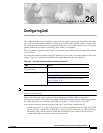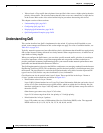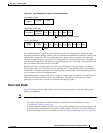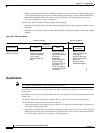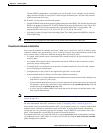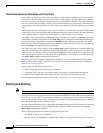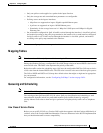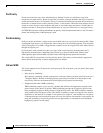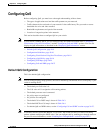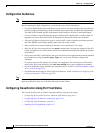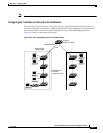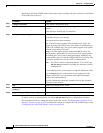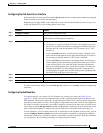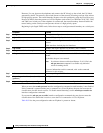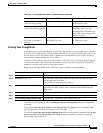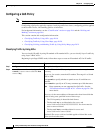
26-9
Catalyst 2950 Desktop Switch Software Configuration Guide
78-14982-01
Chapter 26 Configuring QoS
Configuring QoS
Configuring QoS
Before configuring QoS, you must have a thorough understanding of these items:
• The types of applications used and the traffic patterns on your network.
• Traffic characteristics and needs of your network. Is the traffic bursty? Do you need to reserve
bandwidth for voice and video streams?
• Bandwidth requirements and speed of the network.
• Location of congestion points in the network.
This section describes how to configure QoS on your switch:
Note If your switch is running the SI, you can configure only the features described in the “Configuring
Classification Using Port Trust States” and the “Configuring CoS and WRR” sections. You can also
display the QoS information as described in the “Displaying QoS Information” section.
• Default QoS Configuration, page 26-9
• Configuration Guidelines, page 26-10
• Configuring Classification Using Port Trust States, page 26-10
• Configuring a QoS Policy, page 26-16
• Configuring CoS Maps, page 26-24
• Configuring CoS and WRR, page 26-27
Default QoS Configuration
This is the default QoS configuration:
Note You can configure policy maps, policers, the CoS-to-DSCP map, and the DSCP-to-CoS map only if your
switch is running the EI.
• The default port CoS value is 0.
• The CoS value of 0 is assigned to all incoming packets.
• The default port trust state is untrusted.
• No policy maps are configured.
• No policers are configured.
• The default CoS-to-DSCP map is shown in Table 26-3.
• The default DSCP-to-CoS map is shown in Table 26-4.
• For default QoS and WRR values, see the “Configuring CoS and WRR” section on page 26-27.
Note In software releases earlier than Release 12.1(11)EA1, the switch uses the CoS value of incoming
packets without modifying the DSCP value. You can configure this by enabling pass-through mode on
the port. For more information, see the “Enabling Pass-Through Mode” section on page 26-15.



